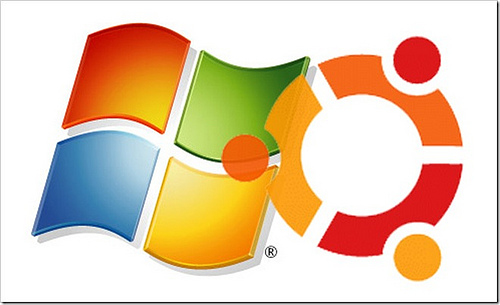 I have been a Linux user since 2004 and in that year, I am only 10 years old. Despite being only a little kid, I am able to install and use Linux Operating System all by myself. Till now, I can use both command-line mode and graphic mode at my finger tips. But recently, I have received a special news that a group from China is developing compatibility core for Linux so that everyone can use Linux to run Windows programs.
I have been a Linux user since 2004 and in that year, I am only 10 years old. Despite being only a little kid, I am able to install and use Linux Operating System all by myself. Till now, I can use both command-line mode and graphic mode at my finger tips. But recently, I have received a special news that a group from China is developing compatibility core for Linux so that everyone can use Linux to run Windows programs.
That’s a good idea! Actually, Wine has already done that, but compatibility core is modified from Wine and it has better performance as it is a core. From this news, I felt very disappointed, because I think that the Linux users and Linux itself may be looked down upon. Is Linux really such an unimpressive thing that cannot complete assignments as well as Windows, and need programs from Windows to support it?
Of course, every Linux users should say ‘No”! Let us see how most users use Linux:
1. They give Windows a large capacity and give Linux only a little. (They think that Open Source softwares should not use too many hardware resources.)
2. They complain Linux boots too slow. (That is a special quality of Linux, because detect hardware every time can avoid “Blue Screen” in Windows.)
3. They always say that “Linux can do that like Windows!”. (That’s a terrible thinking. Both of them are operating systems, but why Linux cannot do so? Furthermore, why do they not say “Windows can do that like Linux!” instead?)
4. They always develop softwares for Windows and complain Linux do not have many softwares. (This one is easy to think, do not need explain.)
5. They think that Linux is for advanced users, so Linux users are very professional. Also, they want to show off their abilities, so they use it. (This idea is good, but I do not think that Linux is so complex.)
6. They find that all good softwares in Linux have their oen Windows versions. (Do you know why? It’s easy! Just because good softwares in Linux are Open Source, and they can be rewrite in Windows easily. Like OpenOffice.org, Audacity, etc.)
7. They always complain the command-line mode is difficult to understand. (Do you think CMD.exe is easy? I think Linux command-line is much more powerful than CMD.exe, it is a type of talking, just talk to computer, and computer will do everything for you.)
8. They always complain that Linux do not have any optimize softwares. (That’s really interesting, why Linux do not have optimize softwares? Because it do not need one! Linux ext3 filesystem is the best filesystem in Computer world, and do not need optimization at all!)
9. They think that Linux is used for Servers, but not Desktops. (That’s wrong, desktops can run Linux and do work very easily too.)
10. They think that Linux cannot be trusted as there is not any company like Microsoft to support this operating system. (Although there is not big company, but we have RedHat, Canonical, Sun and many big Open Source Communities. I still believe that communities and Non-profit organizations should have gained more trust by users.)
Therefore, Linux users should have their own need, and we should not consider about Windows any more when we are using Linux. Forget how to do with Windows, just use our own ways in Linux!
Attachment – How easy Linux is? (A Comparison between Windows and Ubuntu)

1. Install and configure software (e.g. MySQL database software)
Windows: IE -> visit “www.mysql.com” -> lots of clicks -> download -> install -> lots of next steps -> configuration -> start services -> finish
Ubuntu: “apt-get install mysql” -> edit “my.ini” -> “/etc/init.d/mysql start” -> finish
2. Graphic Interface is down.
Windows: Easy! Reboot. Everything lost.
Ubuntu: Restart Gnome or KDE is okay, everything is still here.
3. Kill a running program.
Windows: Close. Cannot close? A lot of clicks on “X” button. Then, No response already. Then a lot of clicks on “Force Quit” or “End Task”!
Ubuntu: “Ctrl+C”, Okay already.
4. Want to know how to use a software. (e.g. Apache)
Windows: Search at Google -> Find Resources -> Clicks -> Read it.
Ubuntu: “man apache”, everything is here.
5. Find everything about something (e.g. PHP)
Windows: Clicks -> Search “PHP” -> find it
Ubuntu: “whereis PHP”.
6. Short commands
Windows/Ubuntu: dir/ls, copy/cp, move/mv.
7. Download something (e.g. download this webpage: http://www.google.com/)
Windows: Use IE -> Open the page -> Save As -> Select Location to store.
Ubuntu: “wget http://www.google.com/”.
8. Read a text file (text.txt)
Windows: Open Notepad -> Open text.txt -> Read
Ubuntu: “cat text.txt” or “vi text.txt”
9. Export the result of a program (a.exe ->a.out)
Windows: Run a.exe -> Copy the result -> Run Notepad -> Paste -> Save as “a.out”
Ubuntu: “a.exe >> a.out “